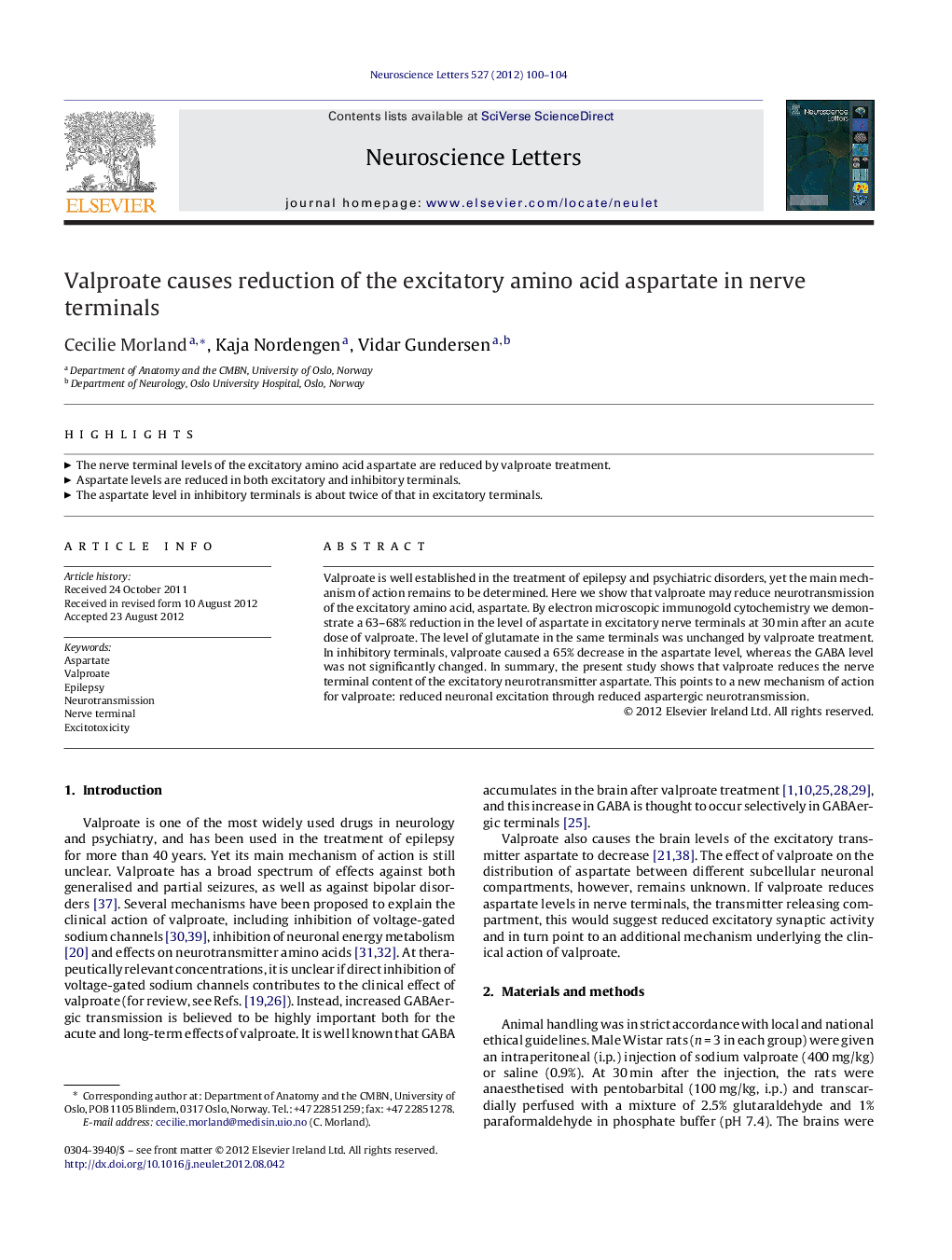| Article ID | Journal | Published Year | Pages | File Type |
|---|---|---|---|---|
| 4344354 | Neuroscience Letters | 2012 | 5 Pages |
Valproate is well established in the treatment of epilepsy and psychiatric disorders, yet the main mechanism of action remains to be determined. Here we show that valproate may reduce neurotransmission of the excitatory amino acid, aspartate. By electron microscopic immunogold cytochemistry we demonstrate a 63–68% reduction in the level of aspartate in excitatory nerve terminals at 30 min after an acute dose of valproate. The level of glutamate in the same terminals was unchanged by valproate treatment. In inhibitory terminals, valproate caused a 65% decrease in the aspartate level, whereas the GABA level was not significantly changed. In summary, the present study shows that valproate reduces the nerve terminal content of the excitatory neurotransmitter aspartate. This points to a new mechanism of action for valproate: reduced neuronal excitation through reduced aspartergic neurotransmission.
► The nerve terminal levels of the excitatory amino acid aspartate are reduced by valproate treatment. ► Aspartate levels are reduced in both excitatory and inhibitory terminals. ► The aspartate level in inhibitory terminals is about twice of that in excitatory terminals.
